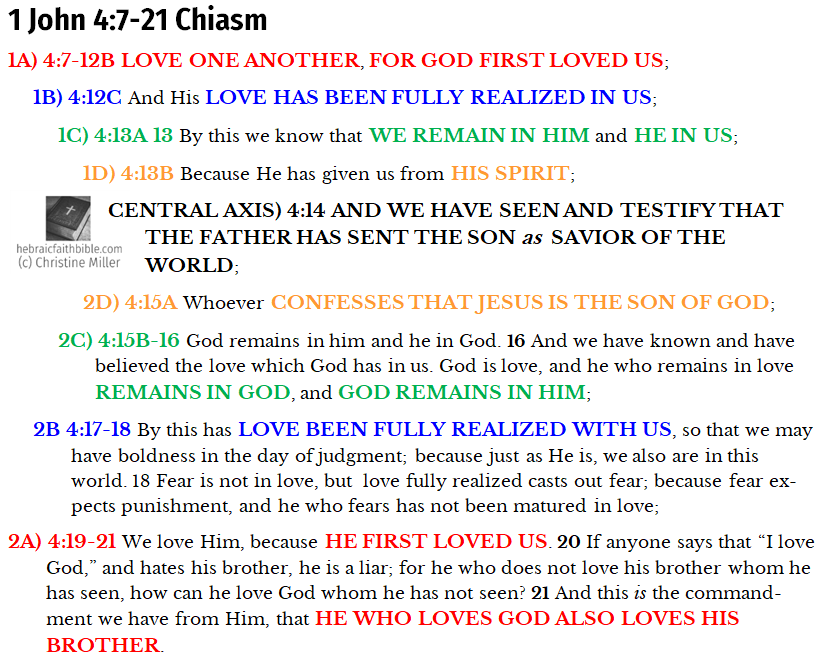Read 1 John 4 here (text coming …) or at Bible Gateway.
1 John 4:7-21 Chiastic structure:
To make sense of the D pair, refer back to verse 2:
By this you know the Spirit of God: every spirit that confesses Jesus Christ having come in the flesh is from God.
Let’s talk about perfect love, shall we?
PERFECT is in Greek, Strong’s G5848 τελειόω teleioo, “to perfect, complete, finish, bring to an end, make mature.” Tracking back through the Septuagint, we find the Hebrew equivalent to be Strong’s H8552 תמם tamam, “to be complete.” The story the Hebrew Root Word is telling is of the cross (tav) covered by the mighty (mem) blood (mem) which finishes and makes complete. Notice that this adjective does not mean “flawless.”
LOVE is in Greek, Strong’s G26, ἀγάπη, agape, “love.” Tracking back through the Septuagint, we find the Hebrew equivalent to be Strong’s H157 אהב ahab, “to desire, to breathe after.” The story being told is of strong (aleph) love (hey + bet); God’s love for man as the strongest love in the universe.
Perfect love is a reciprocal love: God first loves us, and when we receive His love, we love Him back (vs. 19).
Perfect love is God’s nature (vs. 8, 16: “God is love”).
Perfect love makes God’s presence evident (vs. 7-8, 20-21; since “no one has seen God,” we reveal Him through His love).
Perfect love is not still, nor merely emotional, but functional; its related word in Greek is telos, the goal, the endpoint. Therefore perfect love does what it is meant to do.
Perfect love does not coexist with fear, which is an alien invader. Just as turning on a light switch “casts out” darkness, so perfect love “casts out” fear.
Perfect love is love grown up into maturity, and fully realized, not only in our reception of it from God, but in our expression of it to our fellow man.
If there are questions, these are good resources:
Tamiym, “Perfect;” Strong’s H8549 – Christine Miller
John 13, Agapeo and Agape – Christine Miller
JOHN’S EPISTLES INDEX OF STUDIES | BIBLE FOR BEGINNERS ARCHIVE


















Leave a Reply